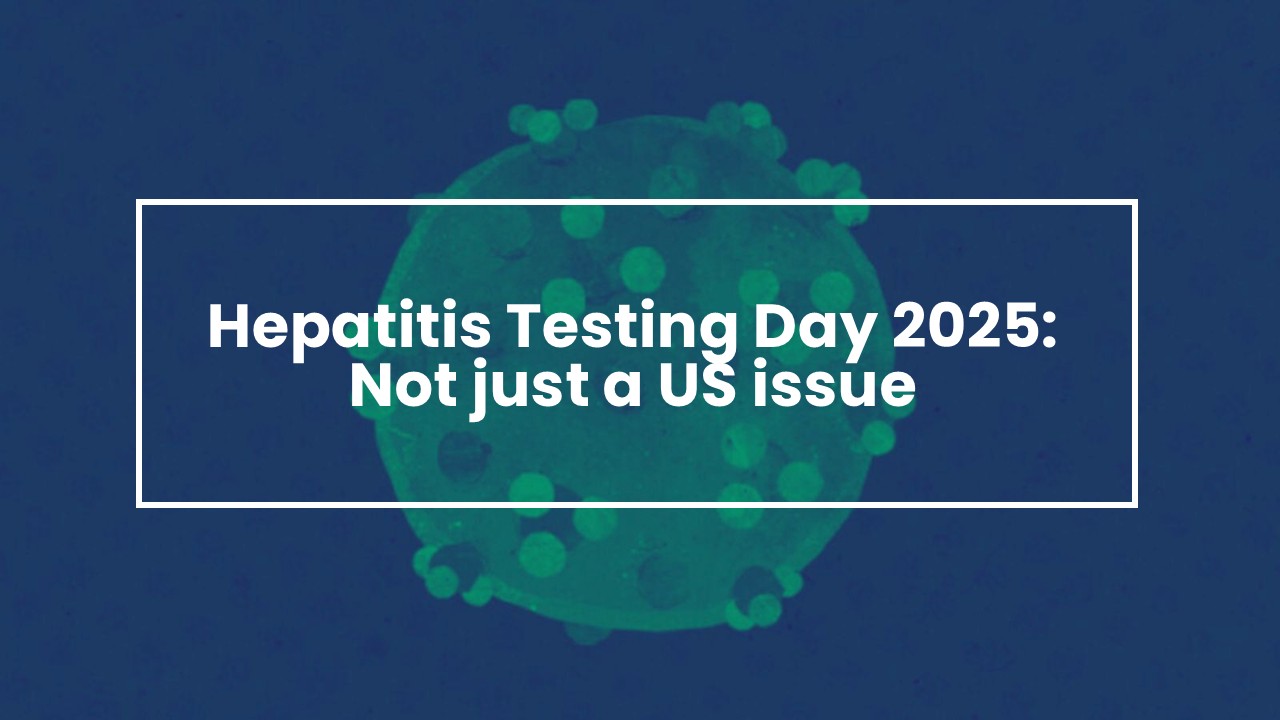
19 May is Hepatitis Testing Day. While this is currently a United States (US) recognised day, the Centre of Excellence for Long-acting Therapeutics (CELT) wishes to highlight the importance of this important global message.
What is Hepatitis Testing Day?
In 2012, the then Vice Admiral of the US Public Health Service, Regina Benjamin, released a paper in the Public Health Report to highlight the beginning of National Hepatitis Testing Day. Viral hepatitis was a “silent epidemic” in America with a lack of knowledge within health care providers, people at risk and the public.
Twelve years later, on 19 May 2024, there was a proclamation from the White House decreeing the designation:
Now, therefore, I, Joseph R. Biden Jr., President of the United States of America, by virtue of the authority vested in me by the Constitution and the laws of the United States, do hereby proclaim May 19, 2024, as National Hepatitis Testing Day.
Why is testing for hepatitis important?
Benjamin’s original paper explains that not knowing one’s hepatitis B and C status leads to patients not seeking treatment and further spreading the disease. The US Department of Health and Human Services recommends that all adults get screened at least once in their lifetimes for hepatitis B and hepatitis C.
Hepatitis often doesn’t show symptoms until later stages of the infection. Therefore, those living with viral hepatitis may not know they carry the disease or the risk of spreading the virus to others, and can also lead to developing the severe disease which can be fatal.
If left untreated, hepatitis B and C can cause liver cancer, and they are a leading cause of liver transplants. Hepatitis C virus is also a leading cause of death by reported infectious disease in the US.
Why is CELT promoting National Hepatitis Testing Day?
Given the devastating impact of viral hepatitis, it may surprise many readers to know that hepatitis is treatable. As so many people are unaware they have the disease, it is often only when more severe symptoms start to present that people seek medical advice. Hepatitis C virus disproportionately effects people living in low- and middle- income countries (LMICs). Around 50 million people have chronic hepatitis C virus and 75% of those cases are in LMICs (WHO).
The LONGEVITY project, funded by global health agency Unitaid, is an international consortium of 8 member and partner organisations led by CELT. Our aim is to create long-acting versions of working medications for the treatment or prevention of hepatitis C virus, malaria and tuberculosis for those in LMICs that need them most.
For most patients, hepatitis C virus is curable within 8-12 weeks, but it isn’t being cured in LMICs. For an 8-12 week course of medication to treat hepatitis C virus, it would require 168 to 252 pills. A pill must be taken three times a day at very specific intervals to be effective, and adherence rates are frequently low, especially in LMICs.
Last year, we presented preclinical proof-of-concept of a single-dose hepatitis C virus treatment that lasts at least 8 weeks. This raises the very real potential for a one-shot cure for hepatitis C virus, and healthcare complexity and cost would be dramatically reduced if it were implemented with a robust point-of-care diagnostic.
This would mean that testing for hepatitis C virus would allow people to receive a one dose treatment immediately. Such a test-and-cure strategy would provide discretion in areas where stigma around medications is high, increasing the likelihood that people will get tested. We want to help create the scenario where a patient’s testing day is also the day they complete dosing of their treatment.
Messaging around hepatitis testing needs to be global. Knowing our hepatitis status means limiting our part in spreading it further. Earlier detection would avoid development of cirrhosis and liver cancer for many patients, with huge healthcare impact. We’re pleased to do the work we do to create a single dose cure option, to play our small part in addressing the consequences of these awful diseases.
#NationalHepatitisTestingDay #HepAware
The LONGEVITY project aims to simplify hepatitis C virus, malaria and tuberculosis treatment and preventative treatment to reduce the drug burden and the number of patients requiring complex therapies for active disease.
Find out more about the LONGEVITY project
The LONGEVITY Project is funded by global health agency Unitaid


The project also involves critical partners and collaborators in the Clinton Health Access Initiative, Johns Hopkins University, Medicines Patent Pool, Tandem Nano Ltd., Treatment Action Group and the University of Nebraska Medical Center






